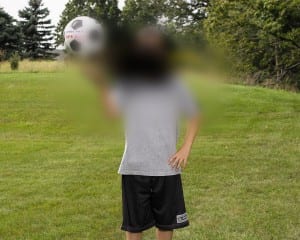“Watching young women, who begin by saying ‘please’ and ‘thank you’, say ‘no, I’m not interested! Stop asking me!’ is the most exciting part.” — Simpson Rowe
Journalist Robbie Owens at CBS DFW Channel 11 covered the research of SMU clinical psychologist Lorelei Simpson Rowe and her co-authors Ernest N. Jouriles and Renee McDonald.
The three developed a video-based program for teaching young women assertiveness training and allowing them to practice it with the goal of helping them resist unwanted sexual overtures that could ultimately result in sexual assault. Jouriles and McDonald also devised a bystander intervention program that teaches young men and women how to recognize and intervene in a dangerous situation.







The virtual-reality simulation component of “My Voice, My Choice” utilizes a software program developed by Jouriles and McDonald in conjunction with SMU’s award-winning Guildhall video gaming program. Jouriles and McDonald are clinical psychologists in the SMU Psychology Department. Jouriles is professor and chair. McDonald is a professor and associate dean of research and academic affairs for Dedman College of Humanities and Sciences.
Simpson Rowe, an associate professor and graduate program co-director in the SMU Department of Psychology, is lead author on the pilot study from SMU.
Results of their study found teen girls were less likely to report being sexually victimized after learning to assertively resist unwanted sexual overtures and practicing resistance in a realistic virtual environment.
The effects persisted over a three-month period following the training.
Owens interviewed the researchers,and McDonald told her that girls learn, “You can be nice and strong. But, be strong. And if nice doesn’t work, be strong and don’t worry about being nice. Get out of the situation.”
The CBS 11 segment, “College Women Learn How To Repel Virtual Aggressor” aired Feb. 20, 2015.
EXCERPT:
By Robbie Owens
CBS DFW Channel 11
A parent’s drive to protect is a powerful motivator: just ask Ernest Jouriles, PhD and Renee McDonald, PhD. A decade ago, the husband and wife team of researchers in the Psychology department at Southern Methodist University saw their daughter Nicola’s approaching adolescence as a huge incentive to begin work on a training program to help young women diffuse—or at least re-direct– sexually charged situations.But, early results failed to engage the teenage mind. So why not tap into the video game generation’s love of gadgets?
“We were thinking, ‘can we do something with virtual reality that could help teens basically practice skills to get out of situations that are potentially difficult—that might be dangerous’,” says Dr. Jouriles, co-author on the research, clinical psychologist, professor and chair of the SMU Department of Psychology.Here’s how it works: students are first taught assertiveness skills. Those skills are then tested during a real time ‘virtual reality’ session. A male research assistant controls the avatar and acts as an aggressor. Of course, the goggles and monitor give up the gig—this exercise in assertiveness isn’t real. But, research assistant and SMU Senior Katie Bridges says it certainly feels real. “You start feeling uneasy,” says Bridges.
Students first learn assertiveness skills. Then those skills are tested during a real time ‘virtual reality’ session. A male research assistant controls the avatar and acts as an aggressor.
“It’s very brief,” says Dr. McDonald, co-author on the research, “which is unusual, and has such a strong effect on victimization rates.” Dr. McDonald is a clinical psychologist, professor and associate dean of research and academic affairs for SMU’s Dedman College. “We’ve been able to reduce them by half among women who go through the program.”
Lorelei Simpson Rowe, PhD, is the lead author on the study, a clinical psychologist, and associate professor in the department. She says she taught young women self-defense during her undergraduate days at Michigan State and says the ‘virtual reality’ training is a perfect extension of her passion to help strengthen young women.
Follow SMUResearch.com on twitter at @smuresearch.
SMU is a nationally ranked private university in Dallas founded 100 years ago. Today, SMU enrolls nearly 11,000 students who benefit from the academic opportunities and international reach of seven degree-granting schools. For more information see www.smu.edu.
SMU has an uplink facility located on campus for live TV, radio, or online interviews. To speak with an SMU expert or book an SMU guest in the studio, call SMU News & Communications at 214-768-7650.

 Study: Contraception may change how happy women are with their husbands
Study: Contraception may change how happy women are with their husbands Study funded by NIH is decoding blue light’s mysterious ability to alter body’s natural clock
Study funded by NIH is decoding blue light’s mysterious ability to alter body’s natural clock Jurassic climate of large swath of western U.S. was more complex than previously known
Jurassic climate of large swath of western U.S. was more complex than previously known

 Bitcoin scams steal at least $11 million in virtual deposits from unsuspecting customers
Bitcoin scams steal at least $11 million in virtual deposits from unsuspecting customers Teen girls report less sexual victimization after virtual reality assertiveness training
Teen girls report less sexual victimization after virtual reality assertiveness training